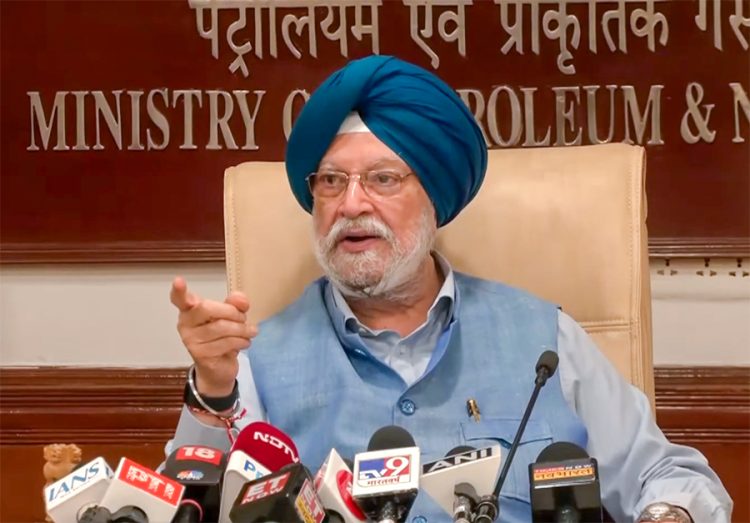New Delhi: The government-owned oil marketing companies will absorb the increase in excise duty on petrol and diesel, announced by the Finance Ministry, as their input costs have come down due to the decline in crude oil prices in the global market, Union Minister for Petroleum and Natural Gas Hardeep Singh Puri said on Monday.
The Minister said that the Rs 2 per litre hike on petrol and diesel would not be passed on to consumers as the oil marketing companies, Indian Oil, Bharat Petroleum, and Hindustan Petroleum, are currently managing inventories based on crude oil purchased at lower prices earlier. This allows them to absorb the additional tax burden without raising retail fuel prices as the government has to keep consumer interests in mind, he added.
Puri emphasised that the government is mindful of market volatility and the need to balance the financial health of the oil marketing companies with consumer interests. He noted that with crude oil prices hovering around $60 per barrel, there could even be potential for future price cuts of fuels if global trends remain favourable.
The Finance Ministry has hiked the excise duty on petrol and diesel to mop more funds for social welfare schemes and investment in infrastructure projects to spur growth while keeping the fiscal deficit in check.
The decision to keep retail prices steady while raising more resources for the national exchequer to ensure stable growth is viewed by economists as a pragmatic approach.
Economists see the government’s strategy that is sensitive to consumer needs while navigating fiscal priorities set by the Finance Ministry.
Crude oil prices have fallen to a four-year low in the global market with the benchmark Brent crude falling to $63 a barrel on Monday, the lowest since April 2021 and the US West Texas Intermediate crude declining to $59.57. India, the world’s 3rd largest importer of crude, stands to gain as oil prices have fallen.
The decline in oil prices augurs well for the Indian economy as the country imports around 85 per cent of its crude requirement, and any decline in oil prices leads to a reduction in the country’s import bill. This, in turn, leads to a lowering of the current account deficit (CAD) and strengthening of the rupee.
Apart from strengthening the external balance, a decline in oil prices also leads to lower prices of petrol, diesel, and jet fuel in the domestic market, which eases inflation in the country.
















